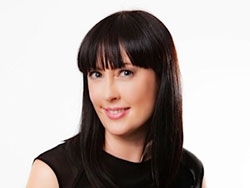New Zealand midwives are lodging the nation’s largest equal pay challenge.
The
New Zealand College of Midwives (NZCOM) filed a statement of claim in the High Court today against the government’s
Ministry of Health, alleging its pay levels breach gender rules under the New Zealand Bill of Rights Act.
Subscribe for FREE to the HealthTimes magazine
In the landmark claim, NZCOM alleges the inadequate remuneration of about 1000 self-employed, community-based Lead Maternity Carer (LMC) midwives is due to gender discrimination.
NZCOM is launching the legal battle to ensure midwifery remains an attractive career choice that is financially sustainable, with remuneration reflecting the value of midwifery-provided services.
NZCOM chief executive Karen Guilliland said while the nation’s midwifery-led system is a world leader in maternity care, improving the outcomes for women and their babies, LMC midwives are paid the equivalent of someone considered semi-skilled or unqualified.
“100 per cent of our clients are women, 99.9 per cent of midwives are women - this is a women’s issue and this is a human rights issue,” she said.
“Midwifery is almost entirely a woman’s workforce, providing care for women and their babies.
“We are professional women who work hard to become midwives and maintain what is required to hold a current practising certificate.
“We are the main workforce providing community services in all communities, including some of our most vulnerable, and we do this 24/7. We expect and deserve more.
“We have to act. We have no other choice.”
In 2014, there were 57,242 live births registered in New Zealand. LMC midwives care for 90 per cent of the country’s pregnant women throughout their pregnancy, labour and postnatal period.
Ms Guilliland said midwives have not been properly paid in almost 20 years, and the average taxable income of an LMC midwife, after business expenses, stands at $53,700.
The Ministry has allocated $2.1 million as a fee increase for payments available for LMC midwives this year for more than 52,000 mothers and babies, which equates to around $41 extra per birth.
“This for a 7-9 month, 24 hour on-call personal service and it is not going to address the need for a sustainable income,” Ms Guilliland said.
“It is the last straw. The Ministry of Health cannot continue to ignore and undervalue its female workforces and the thousands of mums and babies that rely on our midwives.”
Ms Guilliland said the Ministry of Health’s underfunding and lack of supportive frameworks for midwives is now seriously threatening the viability of community maternity based care.
Midwives are now exiting the profession and pregnant women are increasingly struggling to find an LMC midwife, she said.
“Other countries look to New Zealand as an example of what a safe and effective maternity system looks like.
“However there is a real risk of losing this system that works so well for women and their babies if a financially unsustainable payment system means we can’t recruit and retain our LMC workforce.”
New Zealand women have a choice of where they give birth, and the LMC midwife works with women and provides care in the woman’s choice of birth place.
Statistics show 3.1 per cent of women choose to give birth at home and 9.7 per cent give birth in a birthing unit.
In 2012, 40.9 per cent gave birth in a secondary hospital and 46.3 per cent in a tertiary hospital.













